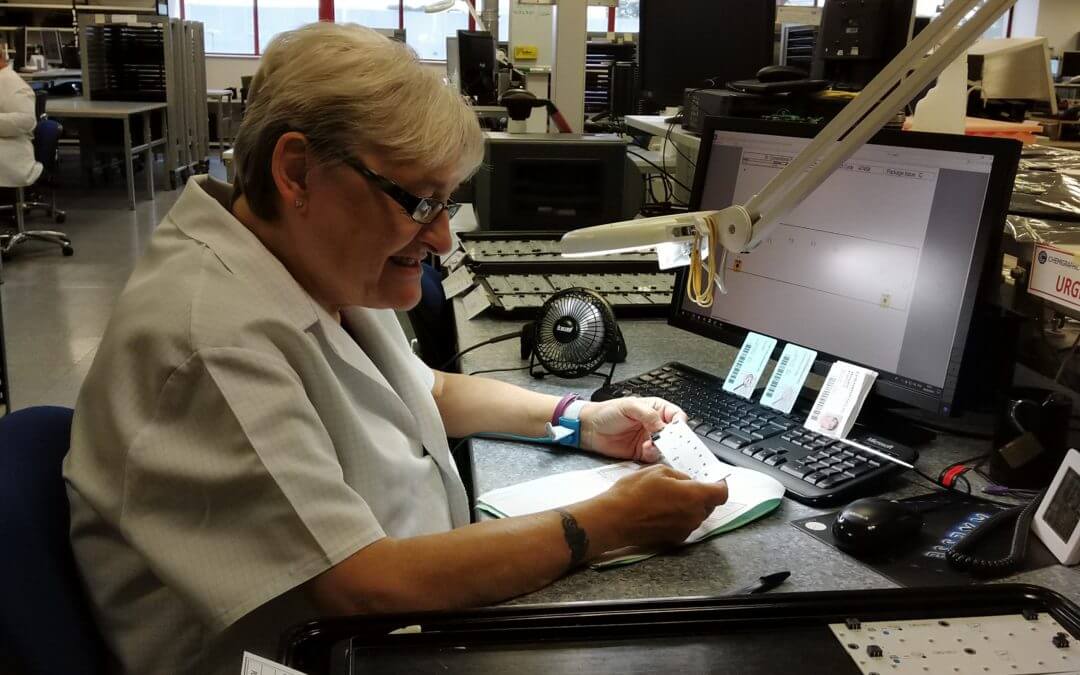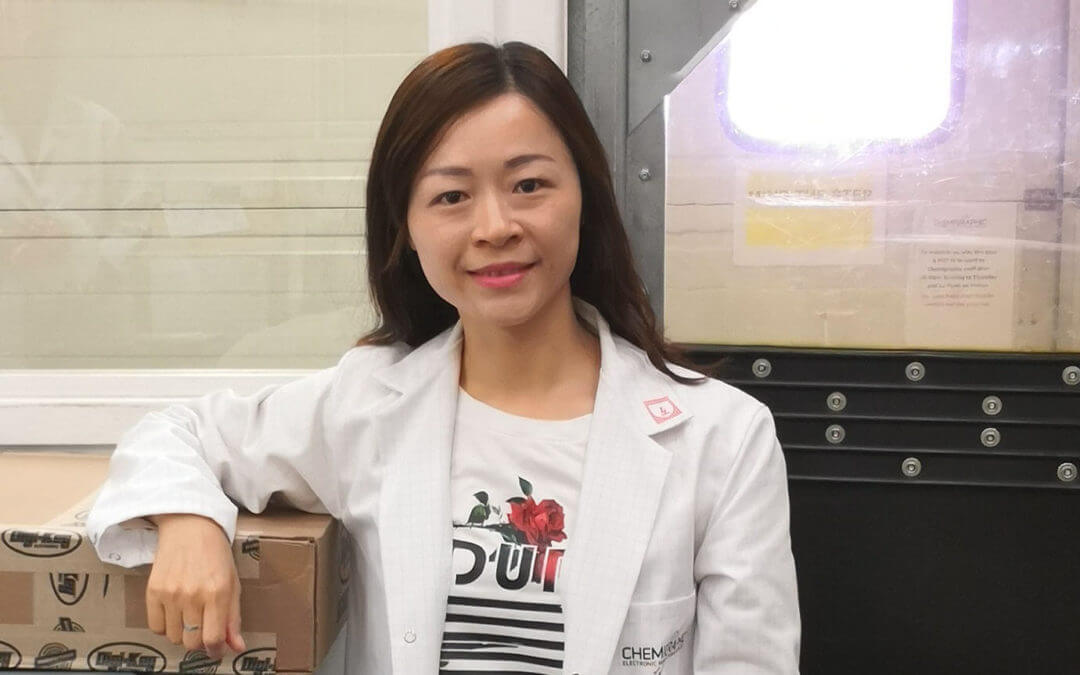Q&A: Margaret, Inspector & Auditor
- How long have you worked in the industry?
Just over 22 years! I was working elsewhere in the Electronic Manufacturing Services (EMS) industry for five years before joining Chemigraphic, and have now been working here for over 17 years.
- Why did you choose to work in this field and in the manufacturing sector in particular?
I have been working in final assembly for several years and therefore becoming an Inspector and Auditor was the next step in my career path. The role requires a high amount of experience as it involves managing one of the key quality checks carried out throughout the manufacturing process. Due to my long history in the field, I was offered the position which I gladly accepted.
- What do you love about your job?
There are many things I like about working for Chemigraphic. My role as Inspector and Auditor allows me to work somewhat independently as I am able to manage my own workload and prioritise jobs that I really enjoy.
I also love working here as it has a wonderfully friendly environment, where everyone involved feels part of the same big project. It is important to me to enjoy where I work, which explains why I have been here for so long!
- Describe a ‘typical’ day for you.
I inspect and audit Printed Circuit Boards (PCBs), checking the quality of assembly and ensuring that all the components are correctly placed. We check to see if there is any damage or polarity on the boards and their components. At Chemigraphic, the quality of our products is vital to our customers and therefore the business; we have several systems and control processes in place to check for product quality and to confirm they will be fit for purpose. Many of the products we manufacture are used in hazardous environments, or in defence or healthcare industries, and therefore their long-term reliability and functionality is critical.
- What’s been your proudest achievement in your career so far?
One year ago, I became the team leader which was a great experience and allowed me to achieve an NVQ in team leadership.
- What’s the biggest change or development you’ve seen since working in the industry?
A technological development that has improved efficiency is the move towards a paperless package, which allows us to look through the assembly instructions and specifications far quicker.

